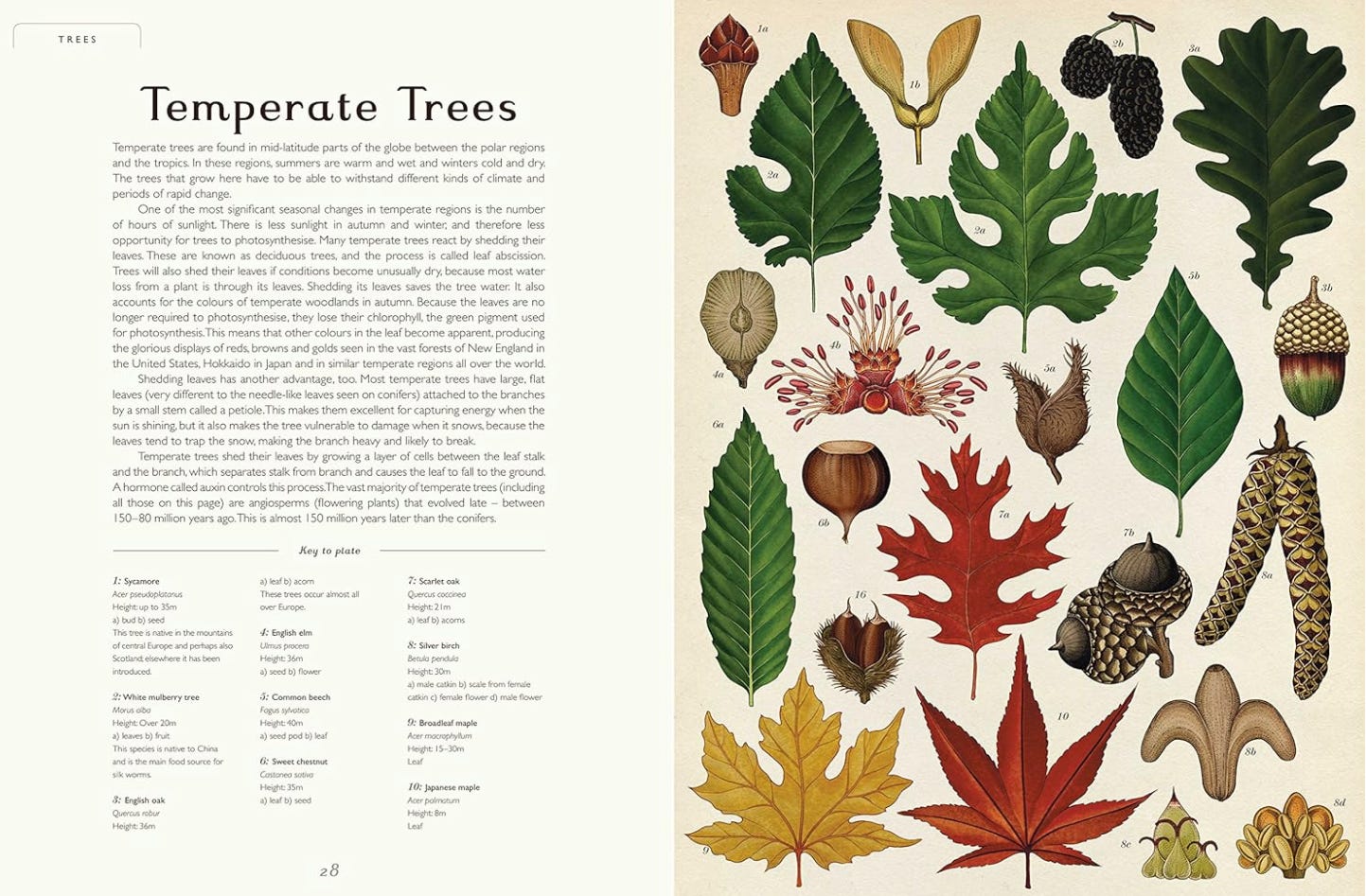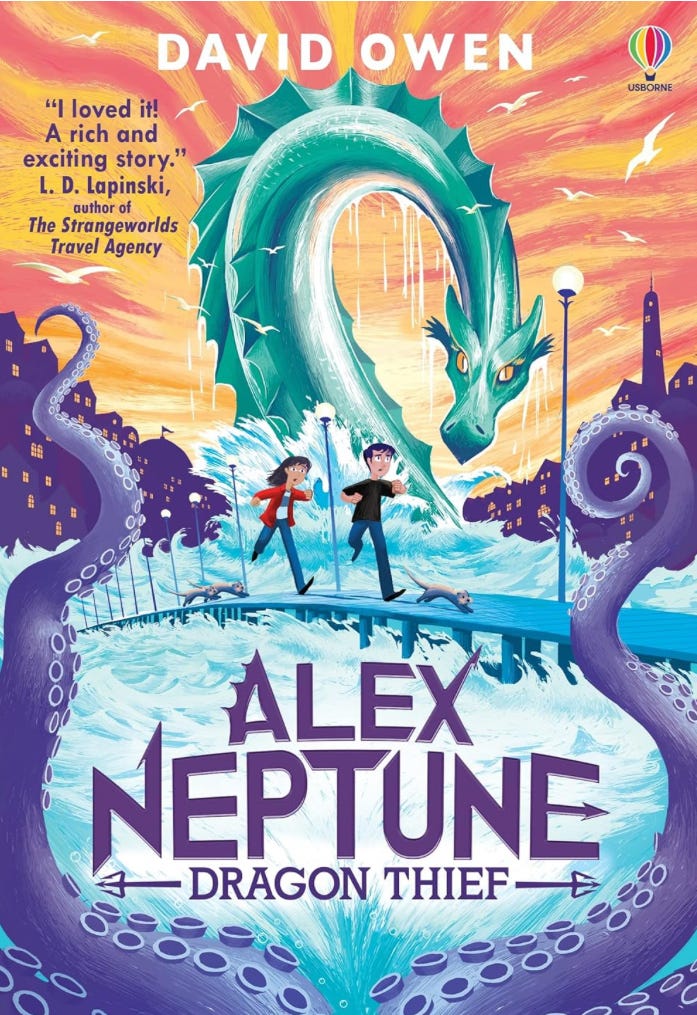Welcome to all the new readers! Each month I share a round-up of the books and resources we’ve been enjoying recently.
After a helpful nudge from
I’m keen to hear from homeschoolers with teenagers. I have one guest post coming up for you on this subject, and if you are home educating a teen I would love to hear about your days. How do you make socialising work, what’s your approach to tech, is it all about reading a lot of text books, how has your life at home changed over the years, or did you take your child out of school? If you’d like to write me a guest post, please get in touch. And if you know a family who fits the bill, please send them my way! Everyone is welcome: unschoolers, classical educators, religious, not-religious, small families, big families. There’s room for everyone. I’m also open to hearing from the teens themselves.February posts you might have missed
Difficult doesn’t have to be bad: The challenge of challenging our children and ourselves
The ultimate goal of homeschooling: Why it’s ok if your child isn’t completing text books or whole curriculums.
Should we have a home education register?
And two ‘how we homeschooled today’ guest posts: Amy Fischer, sharing her Charlotte Mason-inspired homeschool with her three boys (6, 8, and 10), and Kandace Burnhams, finding her feet home-educating her 2, 4 and 7 year olds.
As always, what follows isn’t everything we’ve used, but the things we’ve enjoyed and used the most. If you’re new to How We Homeschool, my own children are 6 and 8, but there’s a range of resources here for both older and younger children.
Maths
Family Math (I shared ‘Missing Digits’ in this post). Lots of ideas for games that are quick and easy to set up that encourage all sorts of mathematical thinking. I’ve used this book a lot over the past few years and we still have more to explore.
Math for Love: I bought the Fraction Curriculum, and we’re really enjoying slowly working through it. I like that the lessons can easily be broken down into smaller parts, so one lesson can happily take all week if that’s what your children need. And I love all the different ways they encourage children to play with fractions. We also played Broken Calculators, which you can read about for free on the website.
Lift-the-Flap Fractions and Decimals. (Activity book available once your child has mastered the concepts.)
Magnetic tiles. This was a Christmas present for the children (thank you to the kind readers who suggested this as a great gift!). It wasn’t intended as a ‘maths toy’, but I am so impressed by how these tiles encourage a host of STEM skills. The children have been playing with all sorts of 2D and 3D shapes, building, colour-mixing on sunny days, exploring angles… and it’s all through play. We have the very expensive Connetix tiles, possibly because I am a sucker, but cheaper versions are available. I am now itching to buy the Shape Expansion Pack. We’ve also been using 2D wooden shapes (try the Math for Love ones [UK link]), which are smaller and encourage the children to think about scale.
Science
Corpse Talk Groundbreaking Scientists—This is a slightly weird concept: Scientists of the past come back from the dead to be interviewed in a graveyard. But the content is excellent, and the graphic-novel style is very appealing to children. We’ve so far read about Mary Anning, Edward Jenner, Darwin, and Marie Curie, and there are 18 in total so we’ve got lots more to go. Subjects range from Aristotle to Einstein. There are others in the same series which we haven’t tried yet: Storytellers, Explorers, Women, Rebels, Kings & Queens.
Lots of Things to Know About Space, and Lots of Things to Know About Your Body—Both these books are fun and very readable. What they are not is comprehensive. They definitely help children to learn lots about the subject and make it absolutely fascinating, but they don’t aim to present an encyclopedic overview.
St John’s Ambulance animated first aid videos. Is first aid science? My daughter has been working on a Cubs first aid award, and we found these videos helpful. They’re animated, so not remotely grisly or scary.
DK Animal Atlas. A library book that I am desperate to add to our permanent collection. I wrote about it in this post. Also great for geography.
Journey to the Earth’s Core. We have really enjoyed this lift-the-flap book that covers the Earth’s structure, rock formation, mining, underground water, fossils, and caves.
Botanicum. My two are only just old enough to be able to enjoy this beautiful and informative book. (Amazon says 4+, and maybe 4 year olds would enjoy stunning illustrations, but really this is a book for older children.) It’s one to dip into as you come across plants/subjects—we used it to read about alpine plants, rainforests, and succulents and cacti.
Around the World in 80 Trees. This would be good for younger children, even though Amazon says 8+. Not an overwhelming amount of information, but a nice introduction to trees and particular species. Around the World in 80 Musical Instruments is available in the same series.
David Attenborough’s Madagascar series (3 one hour episodes). If I didn’t know that too much TV makes my children grumpy I would happily have watched the whole thing in one sitting.
Religion
We all really like the new series about religious festivals from Quarto Books. We started with Lunar New Year (which I wrote about here), and now we’re enjoying Ramadan and Eid al-Fitr. Each book follows a child who tells us all about how their family prepares for and celebrates the festival in question. The books are really informative, have nice activities (eg making Ramadan cookies), and lots of colourful illustrations. Amazon recommends for age 5-7. My 8 year old loves this series—although as I mentioned, so far our religious education has been pretty lacking! Diwali, Hanukkah, and Christmas will all be coming out this year.
Reading
Alex Neptune: Dragon Hunter (My son read it, so I can’t tell you much about it. Amazon says 9-12, my son is 6, and says it was a bit scary but not too scary. I would class him as fairly average in terms of how scary he find things.) He’s desperate to read the second in the series.
The Firework Maker’s Daughter, Philip Pullman (Amazon says 8-9, my daughter says it’s a great adventure story.)
How the Whale Became, Ted Hughes. (9-12).
One Thousand and One Arabian Nights, Geraldine McCaughrean. I’ve been reading this aloud—it’s aimed at 9-11 year olds and some of the language is quite advanced. (Recommended reading ages are weird—this book is way more challenging than Alex Neptune!) I don’t think we’ll finish it, but the children loved hearing about Sinbad and Pearl-harvest and genies leaping out of ancient bottles. We also borrowed the Usborne Illustrated version for the children to read to themselves, which they’ve dipped into. Normally they love this series but they haven’t been desperate to read this one.
Visits
Kew Gardens. They do activity backpacks for children, 3-7 and 7+. Book in advance. (We haven’t tried them yet.)
British Museum. We tried out the museum’s backpacks, which are available for children aged 3-16. We did the Roman Britain one and spent a whole hour exploring objects and thinking about jobs in Roman Britain. Highly recommended. Free, but only available on weekends and school holidays and you have to give them a £10 cash deposit. And you only get one per family, in case you need to pre-warn your children that they won’t get one each!
Thanks for reading. If you’re not subscribed, sign up for free and never miss a post.








Would have loved to contribute some insights on homeschooling teens, alas my time seems to get ever more crunched with writing projects and daily life...
Here just a few important things our family learned:
- "build it and they will come" - in order to make social connections happen (and there are none readily available), you need to be the instigator. Create programs, film groups, book clubs, specialty classes. Parents and teens will flock to you!
- teens need other teachers in addition to their parents as class content gets more specialized and complex. In addition, having other teachers ramps us motivation and the amount of effort put into work.
- teens need mentors to inspire them. We have found wonderful online teachers whose positive influence continues to stay with our kids. Our son had an American teacher who taught mythology while living in Egypt, an English teacher who was also a sword smith, falconer, and a consultant on dragons for Game of Thrones, and another who is fluent in Old English and Norse.
Always enjoy a resource round-up, thank you! My son is a few years older than your children but I always find something interesting to check out, that’s the beauty of home education I suppose.